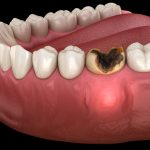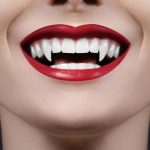Why Teeth Chip with Age: Causes and Prevention Tips
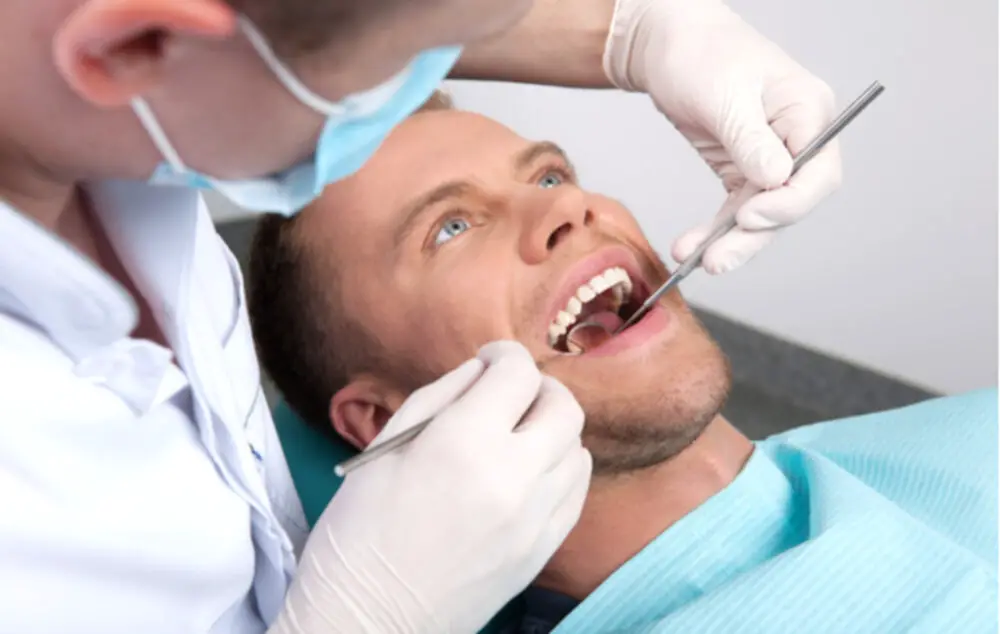
As we age, our bodies undergo various changes, and our teeth are no exception. One of the most common dental problems that people face as they grow older is chipped teeth. This can occur due to various reasons, including wear and tear, accidents, and poor dental hygiene. While chipped teeth may not seem like a major concern, they can be painful, unsightly, and can lead to other dental problems if left untreated. Therefore, it is essential to understand the causes of chipped teeth and learn how to prevent them. Chipped teeth can be caused by a variety of factors, but one of the most common reasons is wear and tear. As we age, our teeth become more susceptible to chipping due to the natural aging process. Over time, the enamel on our teeth can weaken, making them more vulnerable to damage. Chipped teeth can also occur due to accidents, such as falls or sports injuries. Additionally, poor dental hygiene, such as not brushing or flossing regularly, can weaken teeth and make them more prone to chipping. By understanding the causes of chipped teeth, we can take steps to prevent them and maintain good dental health as we age.
Chipping teeth is a common dental issue that occurs when a part of the tooth breaks off, leaving a rough or jagged edge. This can happen due to several reasons, including biting down on hard objects, grinding or clenching teeth, and age-related wear and tear. As we age, our teeth become more brittle and susceptible to chipping. The front teeth are particularly prone to chipping as they are more exposed and vulnerable to trauma. Chipping teeth can cause discomfort, sensitivity, and affect the appearance of your smile. To prevent chipping teeth, it is essential to maintain good oral hygiene, avoid chewing on hard objects, and wear a mouthguard if you grind or clench your teeth.
Maintaining healthy teeth is crucial for overall health and well-being, as well as for aesthetic purposes. Strong and healthy teeth enable us to chew and digest food properly, which is essential for our body’s nutrition. Poor dental hygiene can lead to tooth decay, gum disease, and tooth loss, which can affect our ability to speak and eat. Additionally, unhealthy teeth can cause bad breath, mouth infections, and even contribute to systemic diseases like heart disease and diabetes. Therefore, regular dental checkups, proper brushing, flossing, and a healthy diet are essential for maintaining strong and healthy teeth.
Causes of Teeth Chipping

Teeth chipping is a common dental problem that can occur at any age, but it is more frequent in older adults. There are several causes of teeth chipping, and one of the most common is tooth decay. When the enamel of a tooth is weakened, it can be more susceptible to chipping and breaking. This can occur due to a buildup of plaque and bacteria on the teeth, which can cause decay over time. Another cause of teeth chipping is bruxism, or teeth grinding. This condition can wear down the enamel of the teeth, making them more vulnerable to chipping and breaking. Other factors that can contribute to teeth chipping include poor oral hygiene, a diet high in sugar and acidic foods, and trauma to the mouth. In some cases, genetics may also play a role in the likelihood of teeth chipping. Regardless of the cause, it is important to address chipped teeth promptly to avoid further damage and potential infection. Prevention measures can include practicing good oral hygiene, avoiding hard and crunchy foods, and wearing a mouthguard if you grind your teeth. By taking care of your teeth and addressing any signs of chipping or decay early on, you can maintain a healthy smile for years to come.
As we age, our bodies undergo natural wear and tear, and our teeth are no exception. The daily use of our teeth in biting, chewing, and grinding food can cause tiny cracks and chips to form over time. Additionally, enamel, the hard outer layer of our teeth, can become worn down, making them more susceptible to damage. Other factors such as bruxism (teeth grinding), poor oral hygiene, and a diet high in sugar and acidic foods can exacerbate the effects of natural wear and tear, leading to increased chipping and other dental problems. However, by practicing good oral hygiene, avoiding harmful habits, and seeking regular dental care, we can help prevent and address the effects of aging on our teeth.
Grinding and clenching teeth, also known as bruxism, is a common dental problem that can cause chipping of teeth with age. This condition can occur due to stress, anxiety, or sleep disorders. The constant pressure and friction on the teeth can wear down the enamel, leading to chips, cracks, or fractures. Prevention strategies include stress management, relaxation techniques, and wearing a mouthguard at night. It is essential to seek professional dental help to diagnose and treat bruxism to avoid further damage to the teeth.
Consuming hard and crunchy foods can put a strain on our teeth, especially as we age. Our teeth naturally wear down over time, making them more susceptible to chipping and cracking. Additionally, biting down on hard objects like ice or popcorn kernels can cause immediate damage to teeth, resulting in chips or fractures. To prevent these issues, it is important to be mindful of the foods we eat and avoid chewing on hard objects. Incorporating softer foods into our diets, such as cooked vegetables or sliced fruit, can also help reduce the risk of tooth damage. Regular dental checkups and maintaining good oral hygiene habits can also help identify and prevent any potential tooth damage before it becomes a more significant issue.
Trauma or injury to the mouth can cause a range of dental problems, including chipped teeth. This can happen as a result of accidents or falls, and can also be caused by grinding or clenching of the teeth. When teeth are chipped, they can become painful or sensitive, and can also be more prone to decay and infection. To prevent chipped teeth, it’s important to wear protective gear during sports or other activities that pose a risk of injury. It’s also important to practice good oral hygiene, which can help to strengthen teeth and prevent decay. Finally, avoiding habits like chewing on ice or using teeth as tools can also help to prevent damage to the teeth.
Poor dental hygiene can lead to a variety of dental problems, including chipped teeth. When teeth are not properly cared for, plaque and tartar can build up, causing decay and weakening of the enamel. This can make teeth more vulnerable to chips and fractures. In addition, if teeth are not properly aligned, they may experience uneven wear and tear, which can also contribute to chipping. To prevent chipped teeth, it is important to practice good dental hygiene, including regular brushing and flossing, as well as visiting the dentist for regular check-ups and cleanings. In addition, wearing a mouthguard during physical activity can help protect teeth from injury and chipping.
Symptoms of Chipped Teeth

Chipped teeth can cause a variety of symptoms depending on the severity of the chip. For minor chips, some people may not experience any symptoms at all, while others may feel slight discomfort or sensitivity when consuming hot or cold foods and beverages. However, more significant chips can cause more noticeable symptoms such as sharp pain, difficulty chewing, and even bleeding in some cases. Additionally, a chipped tooth can cause a rough or jagged edge that can irritate the tongue and cheek, leading to discomfort and potential sores. It is essential to address any chipped teeth promptly to prevent further damage and alleviate any discomfort or pain associated with the chip. In some cases, a chipped tooth may not cause any immediate symptoms, but over time, it can lead to more significant issues. A small chip can develop into a larger crack, and if left untreated, it can cause the tooth to break or split entirely. This can lead to more severe pain, difficulty eating, and even infection if bacteria enter the exposed tooth pulp. Additionally, a chipped tooth can affect the overall appearance of your smile, leading to self-consciousness and a lack of confidence. Therefore, it is crucial to address any chipped teeth promptly to prevent any potential complications and maintain optimal oral health.
Sensitive teeth are a common issue that many people experience, and it can be caused by a variety of factors. One of the most common causes of sensitivity is exposure to hot or cold foods. As we age, our teeth can become more sensitive due to a loss of enamel or receding gums. This can cause the nerves in our teeth to become more exposed and sensitive to temperature changes. In order to prevent this from happening, it’s important to maintain good oral hygiene habits, such as brushing and flossing regularly, and avoiding acidic and sugary foods. Additionally, using a toothpaste specifically designed for sensitive teeth can help to reduce sensitivity and protect your teeth from further damage.
Pain when biting or chewing can be a sign of a variety of dental issues. One common cause is tooth decay, which can leave the tooth sensitive and painful when pressure is applied. Another cause could be a cracked or chipped tooth, which can cause pain when biting down on hard foods. Gum disease can also lead to pain when chewing, as the gums become inflamed and sensitive. It is important to address any pain when biting or chewing with your dentist, as it may indicate a larger issue that needs to be addressed to prevent further damage to your teeth.
As we age, our teeth become more prone to chipping due to wear and tear. One common cause of chipping is rough or jagged edges on teeth. This can occur due to grinding or clenching of teeth, which can happen both during the day and at night. Over time, this can cause tooth enamel to wear away and create rough spots that are more susceptible to chipping. Other factors that can contribute to rough edges include improper brushing or using a toothbrush with hard bristles. To prevent chipping from rough edges, it is important to maintain good oral hygiene and seek treatment for teeth grinding or clenching. Dental professionals may also recommend dental bonding or veneers to smooth out rough spots and protect against future damage.
Visible cracks or chips on teeth are a common dental problem that can occur due to various reasons. As we age, our teeth become more brittle and susceptible to damage from daily wear and tear, grinding, and clenching. Additionally, consuming hard foods, using teeth as tools, or experiencing trauma to the face can also cause chips and cracks. These imperfections not only affect the appearance of your smile, but they can also lead to sensitivity and further damage if left untreated. Fortunately, prevention tips such as wearing a mouthguard during high-impact sports, avoiding hard foods, and practicing good oral hygiene can help reduce the likelihood of developing chips and cracks on your teeth.
Prevention Tips for Chipped Teeth
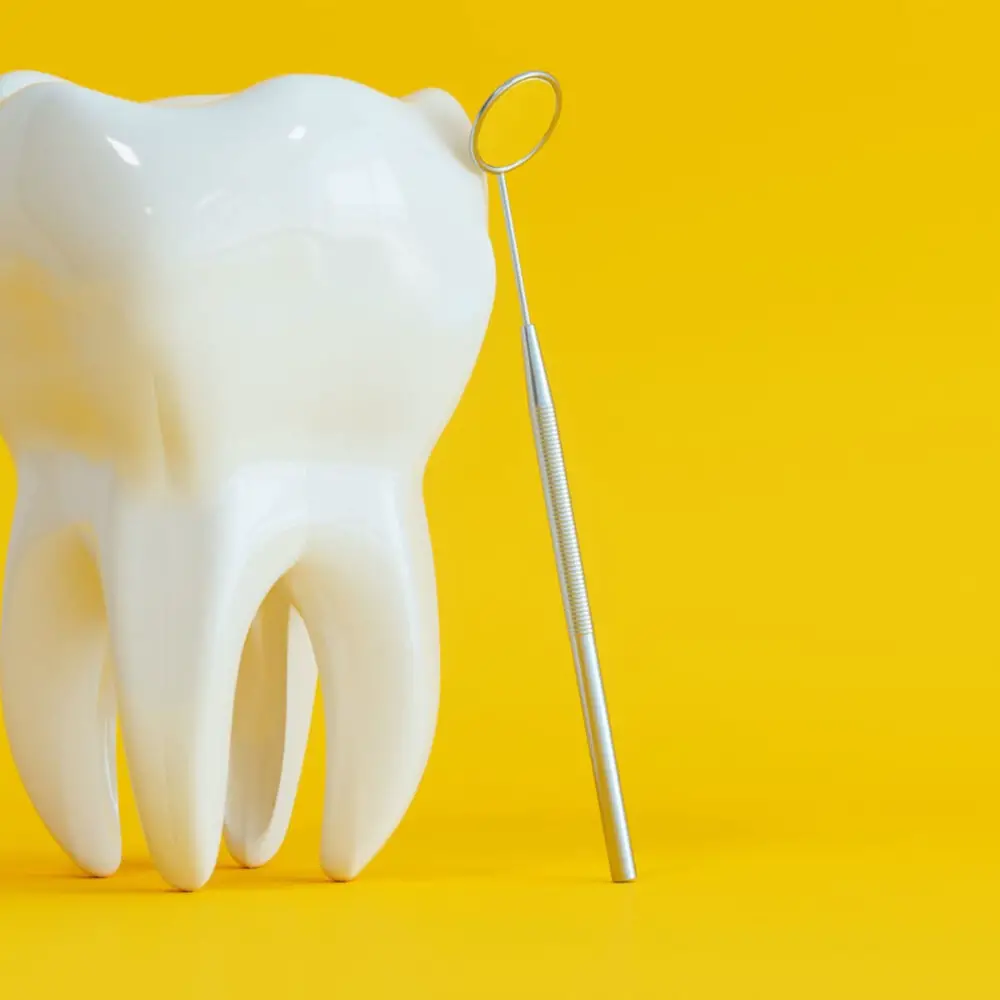
Preventing chipped teeth is a vital aspect of maintaining good oral health. With age, teeth become more brittle, and the risk of chipping increases. There are several prevention tips that can be followed to keep teeth healthy and free from damage. One of the most crucial prevention tips is to maintain good oral hygiene. Brushing teeth twice a day and flossing regularly can help prevent plaque buildup, which weakens teeth and makes them more susceptible to chipping. Regular dental check-ups can also help detect any underlying dental conditions that could lead to chipping teeth. Another essential prevention tip is to avoid biting or chewing on hard objects such as ice, pens, or popcorn kernels. These objects can cause teeth to crack or break, leading to chipping. It is also essential to avoid using teeth as tools, such as opening packages or bottles, as this can cause damage. Wearing a mouthguard during sports activities can also help protect teeth from injury and chipping. If a chipped tooth does occur, it is crucial to seek dental treatment immediately to prevent further damage and infection. Overall, practicing good oral hygiene and being mindful of the habits that can cause chipped teeth can help maintain healthy teeth and prevent dental problems.
Regular dental checkups and cleanings are essential for maintaining healthy teeth and preventing chipping with age. During a dental checkup, your dentist can identify any signs of tooth decay, gum disease, or other oral health issues that could weaken your teeth over time. Additionally, professional cleanings can remove plaque and tartar buildup that can contribute to tooth erosion and chipping. By staying on top of your dental health with routine checkups and cleanings, you can help prevent tooth damage and maintain a beautiful, healthy smile for years to come.
Wearing a mouthguard while playing sports is an essential step in preventing dental injuries, especially chipped or cracked teeth. Mouthguards are designed to cushion the impact of a blow to the face or mouth, reducing the risk of damage to the teeth, lips, tongue, and jaw. Many sports, such as football, hockey, and basketball, require the use of mouthguards for players of all ages. However, even in non-contact sports like gymnastics or skateboarding, wearing a mouthguard can help prevent dental injuries caused by falls or collisions. Investing in a high-quality mouthguard can save you from the pain, cost, and inconvenience of a dental emergency.
As we age, our teeth become more vulnerable to chipping, and one of the common culprits is hard and crunchy foods, such as popcorn kernels, hard candy, and nuts. Chewing on ice can also lead to tooth damage, as it can cause microscopic cracks in the enamel that can eventually result in chips or fractures. To avoid these issues, it’s important to be mindful of the foods we eat and to avoid putting unnecessary stress on our teeth. If you do indulge in crunchy treats or enjoy chewing on ice, try to limit the frequency and duration of these habits, and consider alternative snacks that are softer and gentler on your teeth. By taking these preventative measures, you can help keep your teeth strong and healthy for years to come.
Stress is a common trigger for teeth grinding, also known as bruxism, and it can result in chipped or cracked teeth. Therefore, managing stress is crucial in preventing this dental issue. Practicing relaxation techniques such as deep breathing, yoga, and meditation can help to reduce stress and promote relaxation. In addition, engaging in regular exercise and maintaining a balanced diet can also contribute to stress reduction and overall wellbeing. It is important to identify the source of stress and take steps to address it, whether through seeking support from a therapist or making lifestyle changes. By managing stress, individuals can prevent teeth grinding and protect their dental health.
Proper dental hygiene practices are essential to maintain healthy teeth and prevent chipping with age. Brushing twice a day with a fluoride toothpaste and flossing daily can help remove plaque and prevent decay. Additionally, avoiding hard foods, chewing on ice, and using teeth as tools can reduce the risk of chipping. Regular dental check-ups and cleanings can also identify any potential issues and allow for early intervention. Maintaining a balanced diet and limiting sugary or acidic foods and drinks can also promote healthy teeth and prevent erosion. By prioritizing dental hygiene, individuals can enjoy strong, healthy teeth well into their golden years.
Treatment Options for Chipped Teeth
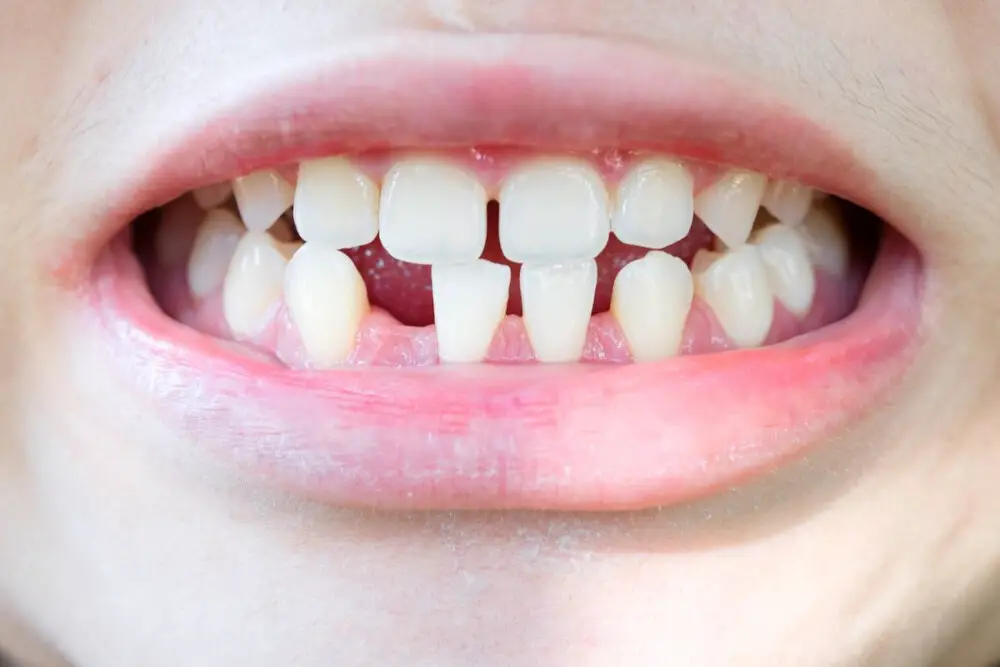
Chipping of the teeth is a common dental problem that can occur due to a variety of reasons. It can be a result of trauma, biting down on hard objects, teeth grinding, or simply aging. Chipped teeth can cause discomfort, pain, and affect the overall appearance of the smile. Fortunately, there are several treatment options available to fix chipped teeth. One of the most common treatments is dental bonding, where a tooth-colored resin is applied to the surface of the chipped tooth and shaped to match the surrounding teeth. This treatment is fast, easy, and can be completed in a single visit to the dentist. Another popular treatment option is veneers, which are thin, custom-made shells that are placed over the front surface of the teeth. They are an effective solution for chipped teeth, as well as for other cosmetic imperfections such as discoloration or gaps. In cases where the chip is severe, a crown may be required to cover the damaged tooth. A crown is a cap that is placed over the tooth to restore its shape, size, and strength. This treatment option is more invasive than bonding or veneers, as it requires the removal of some of the tooth’s structure to accommodate the crown. However, it is a durable and long-lasting solution for chipped teeth. In some cases, a root canal may be necessary if the chip has exposed the tooth’s pulp, which can cause pain and sensitivity. Overall, there are many treatment options available for chipped teeth, and the choice will depend on the severity of the chip, the location of the tooth, and the patient’s preferences and budget.
Dental bonding or filling is a common procedure used to restore chipped or cracked teeth. The process involves applying a tooth-colored resin material to the affected area, which is then hardened with a special light. This treatment is an effective way to repair minor cosmetic issues such as chips, cracks, or gaps in the teeth. It’s a relatively quick and painless procedure, usually taking only one appointment to complete. Dental bonding is a popular option for those looking to improve the appearance of their teeth without undergoing extensive dental work. It’s important to note that while bonding can restore the appearance of a tooth, it doesn’t necessarily strengthen it. In some cases, a dental crown may be needed to provide additional support to a weakened tooth.
Dental crowns and veneers are two popular options for restoring chipped or cracked teeth due to aging. A dental crown is a cap that covers the entire surface of the tooth, while a veneer is a thin shell that covers only the front surface of the tooth. Both options can improve the appearance and function of the damaged tooth, but the choice between them depends on the severity of the damage and the patient’s preferences. Crowns are more durable and can last longer, but they require more tooth structure to be removed. Veneers, on the other hand, are less invasive and can be a good option for minor chips or cracks. It is important to consult with a dentist to determine the best course of action for your individual needs.
In severe cases, tooth extraction may be necessary to alleviate pain and prevent further damage to surrounding teeth and gum tissue. This procedure involves the removal of the entire tooth from the socket, and is typically performed under local anesthesia. While the thought of tooth extraction may be daunting, it is important to prioritize your oral health and seek treatment as soon as possible. Your dentist will work closely with you to develop a personalized treatment plan, which may involve the use of dental implants or other restorative procedures to replace missing teeth and restore your smile. With proper care and maintenance, you can enjoy a healthy, beautiful smile for years to come!
As we age, our teeth become more prone to chipping due to a variety of factors. These include weakened enamel, changes in bite, and the presence of dental fillings. However, there are several steps we can take to prevent our teeth from chipping. These include avoiding hard foods, wearing a mouthguard during physical activity, and maintaining good oral hygiene. Additionally, seeking regular dental check-ups can help catch any potential problems before they become more serious. By taking these preventative measures, we can help ensure that our teeth stay healthy and strong as we age.
Seeking dental care for chipped teeth is crucial as it can lead to various dental problems if left untreated. Chipped teeth not only affect the aesthetics of your smile but can also cause discomfort and pain. The jagged edges of the chipped tooth can irritate the tongue and cheek, leading to oral sores. Moreover, a chipped tooth can also affect the alignment of your bite, leading to further dental issues. Seeking prompt dental care can prevent these problems from escalating and can also help restore the appearance of your teeth. The dentist may recommend various treatment options depending on the severity of the chipped tooth, ranging from simple bonding to more complex procedures such as dental crowns or implants. Regular dental check-ups can also aid in identifying potential chipping issues and prevent them from occurring in the first place.
It is vital to take preventative measures for healthy teeth as we age, as chipping and cracking of teeth can have serious consequences. By maintaining good oral hygiene practices, such as brushing twice a day and flossing daily, we can help prevent the build-up of plaque and tartar that can weaken our teeth. Additionally, avoiding hard and crunchy foods, such as ice or hard candies, can help prevent unnecessary stress on our teeth. Furthermore, wearing a mouthguard during sports or other physical activities can help protect our teeth from accidental trauma. By taking these simple steps, we can help ensure that our teeth remain strong and healthy for years to come.
Conclusion

In conclusion, the natural process of aging can cause teeth to chip due to various factors such as weakened enamel, grinding, and wear and tear. However, there are several preventive measures that can be taken to avoid chipping of teeth, including regular dental check-ups, avoiding hard foods, wearing a mouthguard during sports or teeth grinding, and maintaining good oral hygiene. It is important to address any dental issues promptly to prevent further damage and maintain good overall oral health. So, it is crucial to be aware of the causes and prevention tips to keep your pearly whites healthy and strong for a lifetime.



